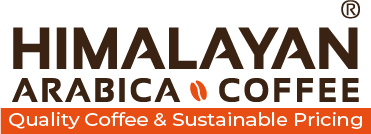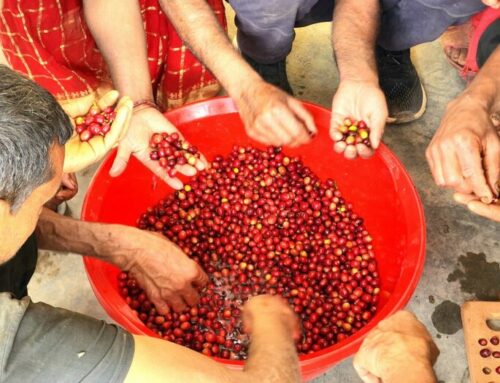It is estimated that more than 90% of Nepali coffee is produced by women only but their contribution has hardly been recognized!
The acknowledgement of this fact is important to encourage and recognize the participation and contribution of women in Coffee industry.
Coffee is the right way to uplift the economic status of Nepali women and to empower them which will ultimately help Nepal government to achieve ‘prosperity goal’.
Himalayan Arabica has taken an initiation to recognize the women’s contribution to empower women in the national coffee community and to encourage and recognize the participation of women in all aspects of the coffee industry through a mission ’10K Women by 2020′.
Women coffee initiation is also very important to enhance sustainable practices in coffee-growing regions and to help growers implement more responsible growing practices, improve the quality and size of their harvests, and ultimately earn better incomes. Through women’s coffee program, we have been promoting premium coffee in the global market and we’re steadfastly committed to helping Nepali small-scale women farmers thrive now and in the future.
Importance and Relation Between Coffee Agriculture and Women
Agriculture is the main source of livelihood for the majority of the population in Nepal. Globalization and climate are causing a huge influence on the agricultural sector. Furthermore, many young Nepalese are leaving the country in search of better opportunities. For an already struggling nation, this is a devastating blow to the country.
Out of 28.15 million populations, 67 percent work in the agricultural sector, accounting for 38 percent of the GDP. Nepal imports over 90% of its products and exports less than 10% of its products, resulting in a massive trade deficit, which is one of the main reasons for Nepal being ranked among the least developed countries in the world.
Unless and until we pay serious attention to agricultural activities, it is destined to remain an underdeveloped country. This is the bitter but irrefutable fact. Therefore, a major economic overhaul is required, and for that Nepal must give the highest priority to agricultural activities, specifically on exporting cash-oriented crops focusing on women producers in order to ensure a sustainable base for fast economic growth.
Therefore, we have identified coffee as one of the most suitable cash crops to fulfill the trade deficit and to have the potential for the fastest economic growth of the nation. Just a single ropani of land (1/20 hectare) can pay roughly Rs. 40,000 (US$400) annually, whereas if the farmers stuck with traditional agricultural systems they would have roughly Rs. 10,000 (US$100). By delivering this simple message, huge changes are bound to happen.







Leave A Comment